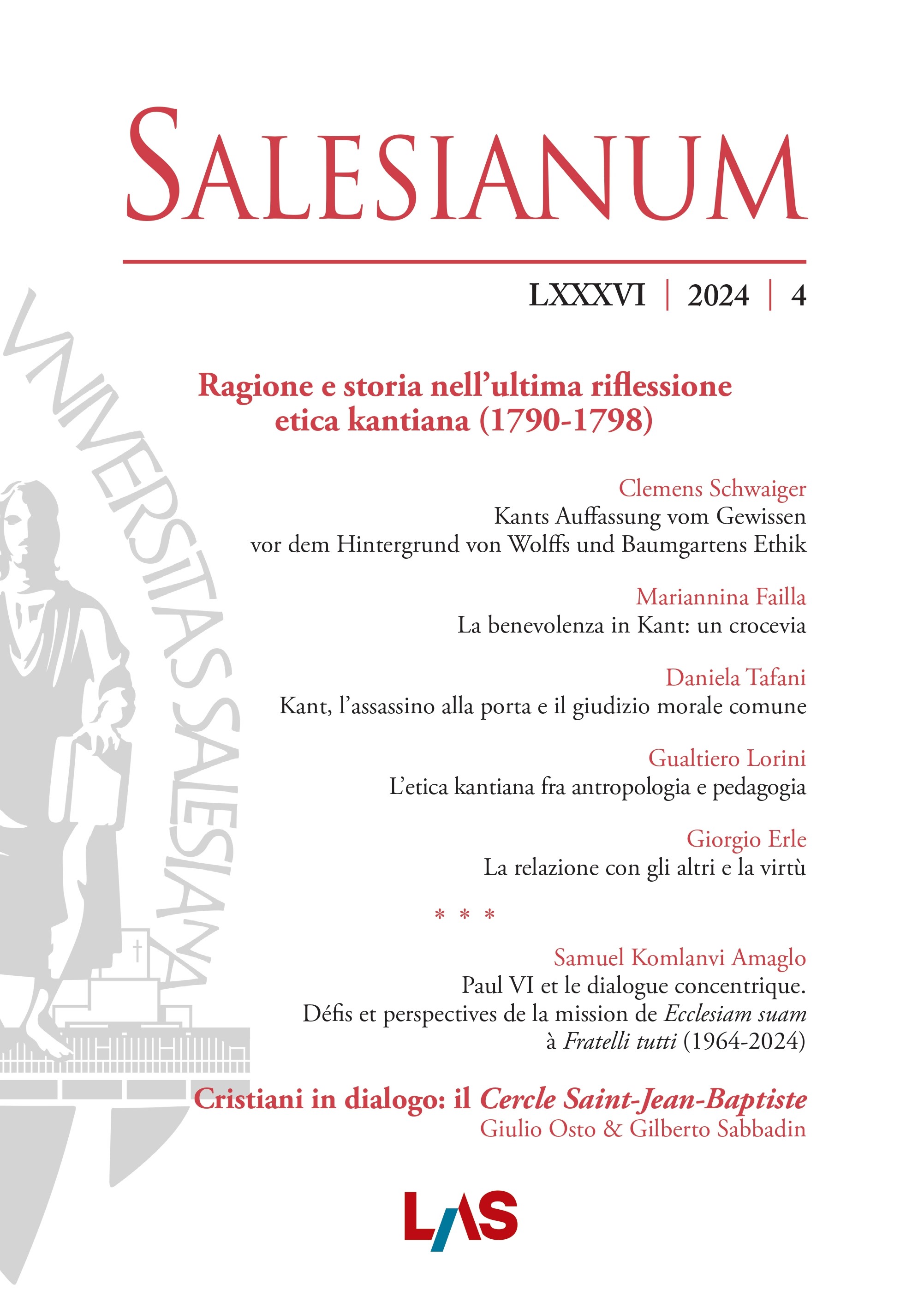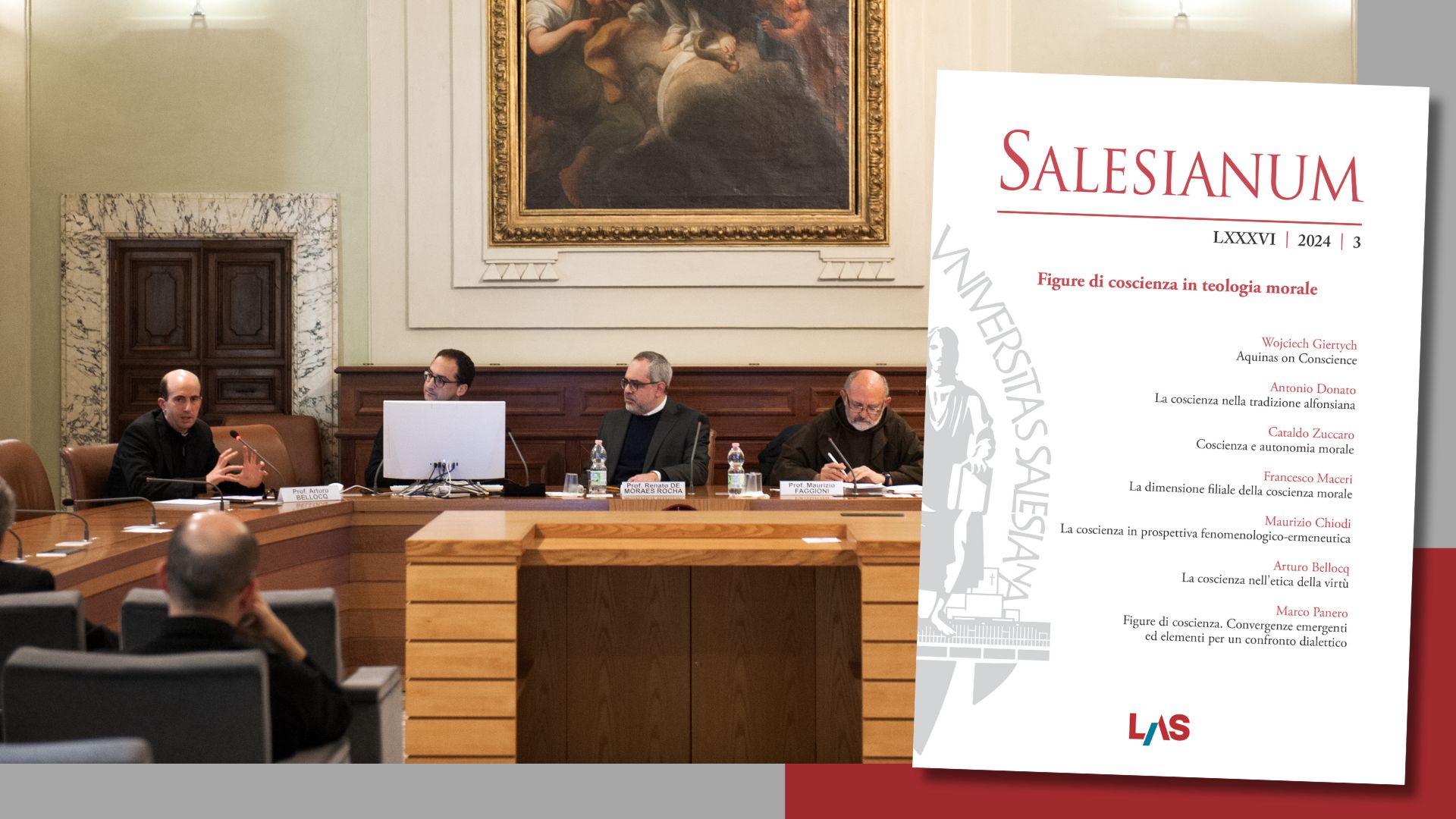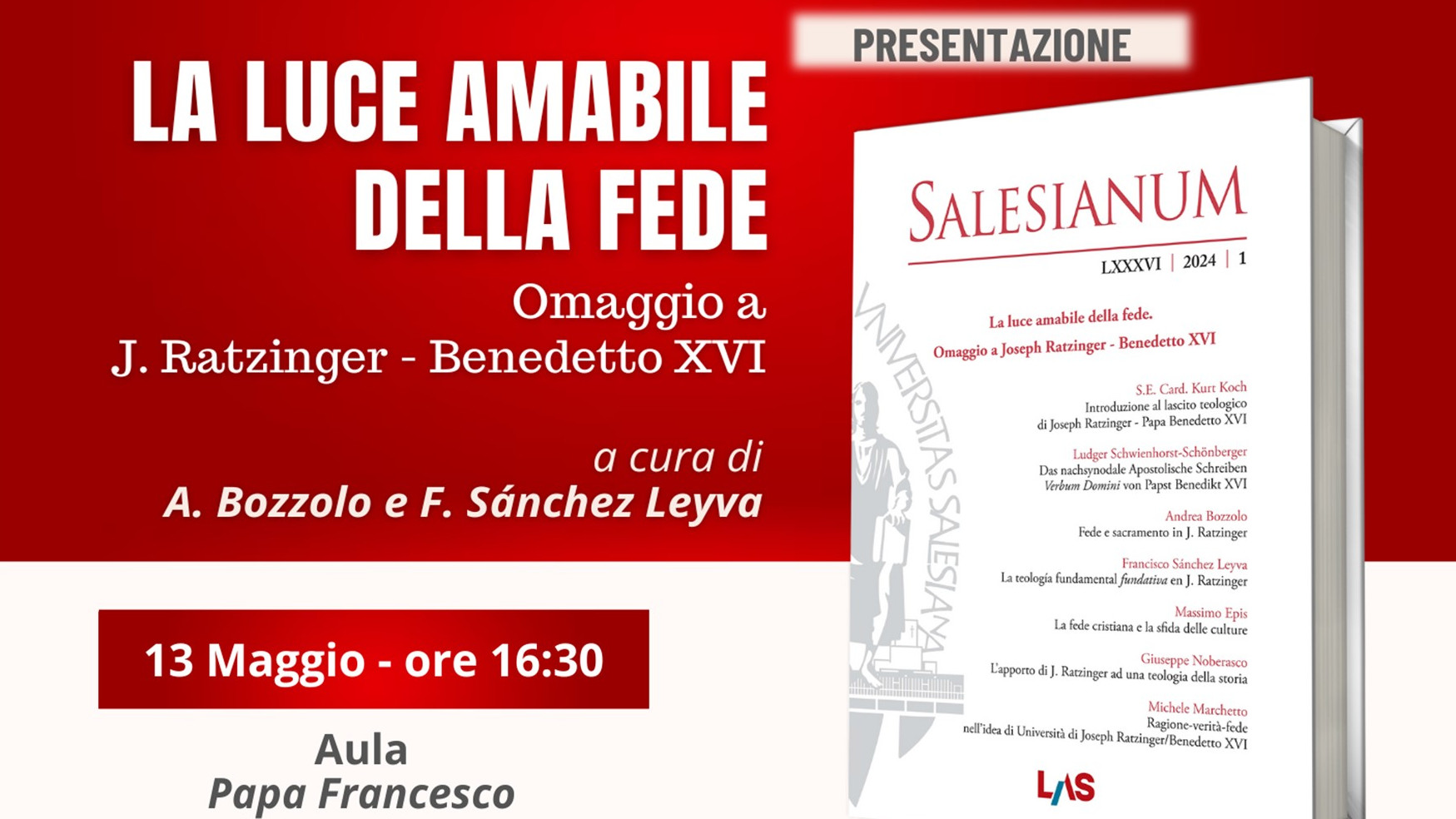Éléments historico-littéraires et contenu de l'encomium De fidelibus defunctis attribué à Amphiloque d'Iconium
Salesianum vol. 83 (2021) n. 2, 238-253
Sezione: Studia
Sommario
Il De fidelibus defunctis (titolo originale: Περὶ κεκοιμημένων πιστῶν καὶ περὶ ἁπίστων τῶν καταλυσάντων τὸν βίον) è un’omelia manoscritta, nella forma di un elogio funebre (encomium). Quest’opera è stata inizialmente attribuita ad Anfilochio di Iconio da Cornelis Datema. Tuttavia, l’analisi testuale e contenutistica rivelano che, probabilmente, quest’opera sia molto più tardiva, per cui occorre escludere la paternità anfilochiana. L’autore è verosimilmente un imitatore o un plagiatore di Anfilochio che chiamiamo Pseudo-Anfilochio, vissuto non prima dell’VIII secolo. Imitando Anfilochio, egli tende a mettere in rilievo i suoi temi preferiti, tra cui la difesa della divinità di Cristo contro gli ariani e contro Eunomio con i suoi seguaci. L’autore usa alcuni anacronismi, quali la menzione dei sette concili ecumenici. Mette sulla bocca di Anfilochio persino un’invettiva contro i musulmani, mentre il vescovo di Iconio è vissuto nel V secolo quando l’islam non era ancora nato. Non sono trascurabili i bizantinismi nel testo di questa omelia.
Abstract
“Περὶ κεκοιμημένων πιστῶν καὶ περὶ ἁπίστων τῶν καταλυσάντων τὸν βίον” is the original title of De fidelibus defunctis; it is a eulogy attributed to Amphilochius of Iconium of the 4th century by Cees Cornelis Datema, a Dutch philologist of the previous century. Nevertheless, this hypothesis is not sustained by the textual and hermeneutic evidence. For instance, the writer of this oration mentioned all first seven Ecumenical Councils, while the latter five were held posthumously after the death of the Iconium bishop. Thus, our anonymous writer, using Amphilochius as his disguise, attempted to accuse the Muslims who come into the scene much later than the era of the Cappadocian Fathers. For these considerations, even though our unidentified writer emphasised Iconium bishop’s favourite topics, such as the divinity of Christ in the Arian controversy, and criticism on Eunomianism, we are convinced that he is an impersonator of Amphilochius of Iconium. Hence, the semantic evidence also proved that this homily is heavily influenced by the Byzantine homiletic writings of the 7th century. Therefore, in our present research, we aim at proposing a more plausible date and authorship of this eulogy.


